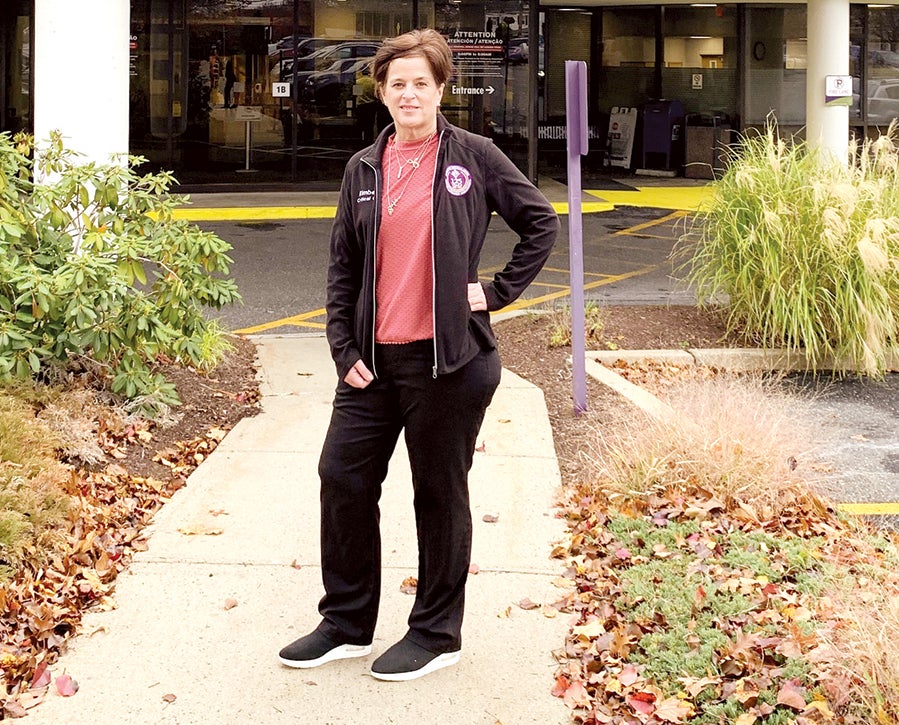Kim Kelley was always so sure of what she wanted to do when she grew up, she could feel it each time she’d pass by Leonard Morse Hospital in Natick growing up. Any time her school bus would drive by, she’d always want to sit behind the bus driver to get the best view. Besides, her mom was a nurse.
“I always knew I wanted to be a nurse,” she said. “I always knew, from fifth grade.”
Kelley was not only sure about nursing, she knew exactly what area she wanted to work in: She wanted to care for the sickest patients.
The coronavirus pandemic has given Kelley and her colleagues at MetroWest Medical Center and worldwide virtually as many sick patients as they could handle. The outbreak was so severe in the spring MetroWest – which now encompasses Leonard Morse – held off on plans to shift Leonard Morse from acute care to specialty care because it so badly needed the patient beds.
As nursing director of critical care services, Kelley oversees all inpatient care services, which received the bulk of coronavirus patients, who’d often come in through the emergency department.
From the first moment those patients would arrive, proper separation of patients was a top priority. After that, Kelley and her staff would have to figure out where to keep sick and highly contagious patients. MetroWest’s Framingham Union Hospital typically has 12 intensive care beds, but shifted beds around from its pediatric cardiovascular step-down units to create enough for 45. Ultimately, the highest patient count topped out at about 35.
Kelley, the nursing director for 15 years and a MetroWest nurse for more than 30, helped to make 25 rooms negative pressure, so contaminated air wasn’t circulated through the rest of the hospital. Contamination risks for front-line workers were serious concerns, she said, yet nurses from other areas of the hospital who wouldn’t normally work with such patients were eager to help out on whatever shifts they could.
“I call my colleagues battle angels,” she said. “Honest to God, it was nothing that we ever encountered before. It was like living a nightmare every day.”
Some nurses stayed in hotels to keep their families safer, Kelley said. In her case, when she’d come home, she’d leave her work sneakers in her trunk, walk in to take a shower, and then greet her family.
After wanting a career helping the sickest patients, she got that responsibility – and will never forget it.
“Just seeing a patient in a bed, with no family members, with six IV bags, medications, pumps galore, on a breathing tube, all the people caring for that person – that’s an image we’ll never forget,” she said.
For some caregivers, the pandemic was too much, Kelley said. Some nurses, she said, chose to retire, burned out or disheartened from the experience and saying, “COVID won.”
For any workers though, she said, the pandemic has made it clear how careful people need to be staying safe.
“We’re only asking the simplest requests of wearing a mask and washing your hands,” she said.
And frontline workers, Kelley emphasized, were always there for patients, including when visitors weren’t allowed to be with them in their final moments.
“Not only did we play the role of the caregiver. We had to play the role of the family member,” she said. “We wouldn’t allow anyone to die without holding their hand. No one died alone.”

